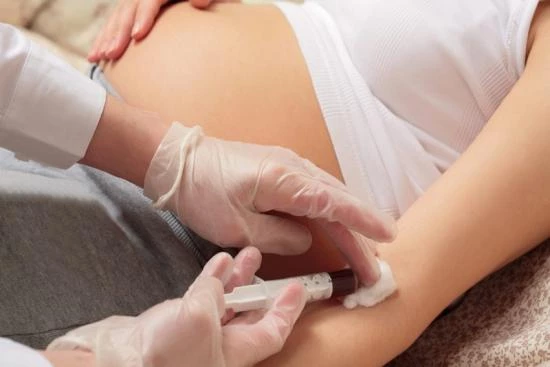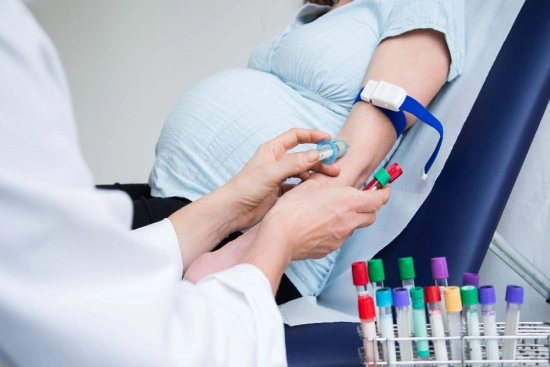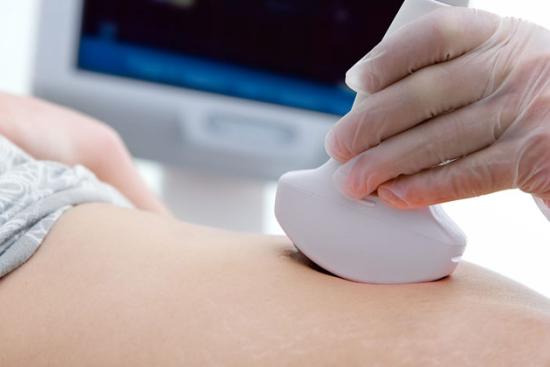For a worry-free pregnancy, take care of your baby from the very beginning. A screening test for Trisomy 21, performed in Turkey at our partner clinics, allows you to benefit from personalized care. This test, based on an ultrasound scan and a blood test, is an essential step in assessing the development of your fetus and identifying any possible risks.
- For pregnant women whose screening in the first trimester revealed a high risk of Down syndrome 21.
- This test requires on average about two weeks to obtain the result.
- Anomaly detection rate greater than 99%.
Best Clinics with Verified Reviews

- Multispecialized hospital
- 7 operating rooms
- Capacity é of 170 beds
What is trisomy 21?
Trisomy 21, also known as Down syndrome, is a genetic alteration due to the presence of an extra chromosome in the 21ᵉ pair. While a healthy individual has 46 chromosomes, people with trisomy 21 have 47.
This extra chromosome affects physical and intellectual development, resulting in specific features such as a distinctive face and delayed cognitive development. Although each individual with trisomy 21 is unique, those affected often have an intellectual disability that is more or less pronounced depending on the case.
Common causes of trisomy 21
Trisomy 21 results from a chromosomal abnormality characterized by the presence of a third chromosome 21. This abnormality, most often of maternal origin, occurs during meiosis, the process of cell division that leads to the formation of gametes. Oocyte aging increases the risk of chromosome segregation errors, which favors the occurrence of trisomy 21.
Although maternal age has been identified as the main risk factor, other genetic or environmental factors may also play a role. Trisomy 21 is not hereditary, meaning that it is not passed on from generation to generation.
Prenatal screening for trisomy 21 is based on a combination of biochemical markers and ultrasound. It allows us to assess the risk to the fetus and refer couples for further testing if necessary. It is important to remember that screening is not a diagnosis and only a fetal karyotype can confirm the presence of trisomy 21.

Prenatal trisomy 21 screening in Turkey
In order to detect a possible case of trisomy 21 at an early stage, pregnant women in Turkey are screened in three stages.
First trimester of pregnancy:
- Cervical ultrasound: This test measures the thickness of the fetal neck. Abnormal thickening may indicate a higher risk of trisomy 21.
- Blood test: A simple blood sample is drawn to measure certain biological markers associated with trisomy 21.
These two tests, combined with the mother's age (risk increases with age),provide an initial estimate of risk.
In the second trimester of pregnancy, another blood sample is taken to measure other biological markers.
This screening allows prospective parents to be informed as early as possible of any risk of trisomy 21. In case of an abnormal result, further tests may be suggested to confirm or exclude the diagnosis.
Early detection of Down's syndrome in Turkey
Thanks to advances in genetics, it is now possible to detect Down's syndrome easily and safely in the early weeks of pregnancy. In Turkey, the best clinics in Istanbul offer non-invasive blood tests that analyze fetal DNA circulating in the mother's blood.
This remarkably accurate test can detect the possible presence of trisomy 21. In the event of a positive result, additional testing (amniocentesis or trophoblast biopsy) is recommended to confirm the diagnosis.
With Turquie Santé, you benefit from the latest medical expertise in clinics with an international reputation.
Although this test is highly reliable, it is not infallible. In rare cases, false positive or indeterminate results may occur. It is important to discuss all aspects of screening with your doctor before making any decisions.

Results of prenatal screening for trisomy 21
The results of your prenatal screening for trisomy 21 will be interpreted by your doctor and reported to you. It is an estimate of the risk that your baby will be affected by this chromosomal abnormality.
All screening tests have a margin of error. In some cases, a "high risk" result may be obtained when the baby is perfectly healthy. Conversely, a "low risk" result does not guarantee the absence of trisomy 21.
If the result is alarming, additional, more accurate but more invasive tests may be suggested to confirm or refute the diagnosis.
Screening for trisomy 21: a personal choice
Screening for trisomy 21 is a decision that's entirely up to you.
Take advantage of the personal support of our healthcare professionals. They are here to answer your questions and support you throughout your pregnancy.
You can also contact a group of parents living with a child with Down syndrome or a group of parents who have chosen to terminate their pregnancy.
It's important to think about the emotional aspect of this screening test. This will allow you to make a decision that is consistent with your values, beliefs, and personal experiences.
Share this page






